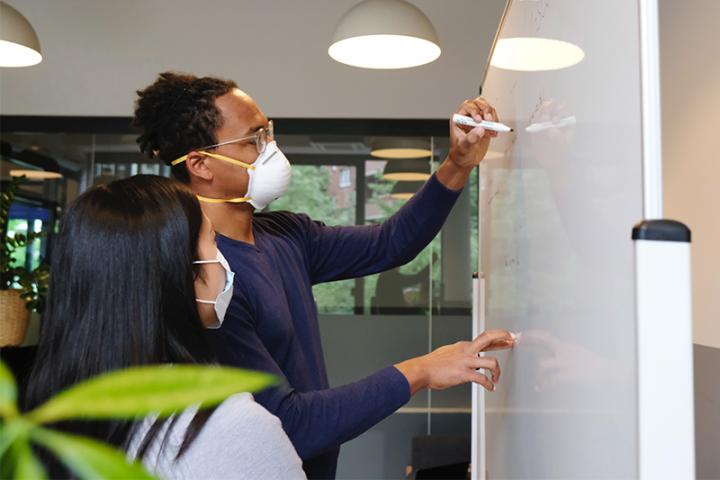
Worker Alcohol Abuse: Employers Can Help
Isolating and working from home because of the pandemic, everyone has heard the jokes about alcohol. A Facebook favorite: Home schooling going well. Two students suspended for fighting. One teacher fired for drinking on the job.
The United States has a temperate drinking culture, and the joke perfectly captures Americans’ ambivalence about alcohol. Drink moderately and alcohol can be a pleasant experience, an accompaniment to a meal, stress reducer and party enhancer; drink too much and unpleasant consequences can result, particularly interfering with the performance of critical social roles such as parenting, family, friends and work. In this context, employers are worried about what employees are doing while working from home. Are they all sitting at their computers with a glass of wine or coffee? Here are a few facts to guide employers and assist employees working from home.
Employees most at risk of developing a drinking problem are those who have lost their jobs. When the economy turns down and unemployment goes up, the prevalence of individuals diagnosed with alcohol use disorders increases. In this context, employers want to keep their workforces intact and employed so that, after the pandemic passes, they will have healthy employees to resume full operations.
Most Americans are either abstinent or drink responsibly. Social drinkers follow a communal norm dictated by America’s temperate culture: Drink in moderation so that it does not interfere with social obligations. Approximately, a third of Americans do not drink alcohol. Most do not drink because it is against their religion or for health reasons; some are recovering alcoholics, living a sober life free from alcohol. There is little risk that those who are abstinent for religious or health reasons will suddenly pick up a drink. Those in recovery know how to maintain their sobriety, even in these chaotic and stressful times, by participating in mutual aid, self-help groups such as Alcoholics Anonymous, Smart Recovery or Women for Sobriety. The good news is that many self-help group meetings have moved online, where members continue to find support for their sobriety.
Approximately 14 percent of Americans have an alcohol use disorder. In layperson terms, they are either abusing or dependent on alcohol. Employee assistance programs can help these employees by using the job performance standard, the constructive confrontation process, and offers of help to correct drinking problems. Whether employees are working on the job or at home, managers and supervisors monitor job performance and take corrective action when performance is unsatisfactory.
It is important to recognize that employees who are abusing alcohol will change their behavior when provided constructive feedback on their performance. Employees who are dependent on alcohol are most at risk of having their drinking go out of control and are in need of help to become sober.
Employees who go to treatment with the support of their employer and/or union have the best chances of recovery. This is where an employee assistance program provider can help. Telemedicine is not only for medical doctors. Using online clinical interventions, employee assistance providers can talk managers and supervisors through the process of assisting employees and provide employees the support that they need to moderate their drinking behavior or accept treatment for their dependence and start on the road to recovery, lifelong sobriety, and healthy family and work roles.
Working from home is chaotic and stressful, but not every employee is sitting at home drinking on the job. Knowing who is at risk and how to help those most in need of assistance is the first step in maintaining a healthy workforce and managing alcohol abuse and dependence at work.
For more information on helping employees with alcohol and other drugs problems, see:
- Alcoholics Anonymous
- Narcotics Anonymous
- AL-ANON
- Women for Sobriety
- Smart Recovery
- Secular Organizations for Sobriety
- Employee Assistance Professionals Association
- Substance Abuse and Mental Health Services Administration
Bill Sonnenstuhl is a professor in the ILR School’s Department of Organizational Behavior and associate director of the Smithers Institute for Alcohol-Related Workplace Studies. He is also a board member of Cayuga’s Watchers, faculty adviser for Sober@Cornell and president of Cornell Sober Housing, Inc. He is author and coauthor of books on employee and member assistance programs, which are available as ebooks at Cornell University Press. They include: "Inside an Emotional Health Program; Strategies for Employee Assistance Programs" (with Trice); "Member Assistance Programs in the Workplace" (with Bacharach and Bamberger), and "Working Sober; and Mutual Aid and Union Renewal" (with Bacharach and Bamberger).


